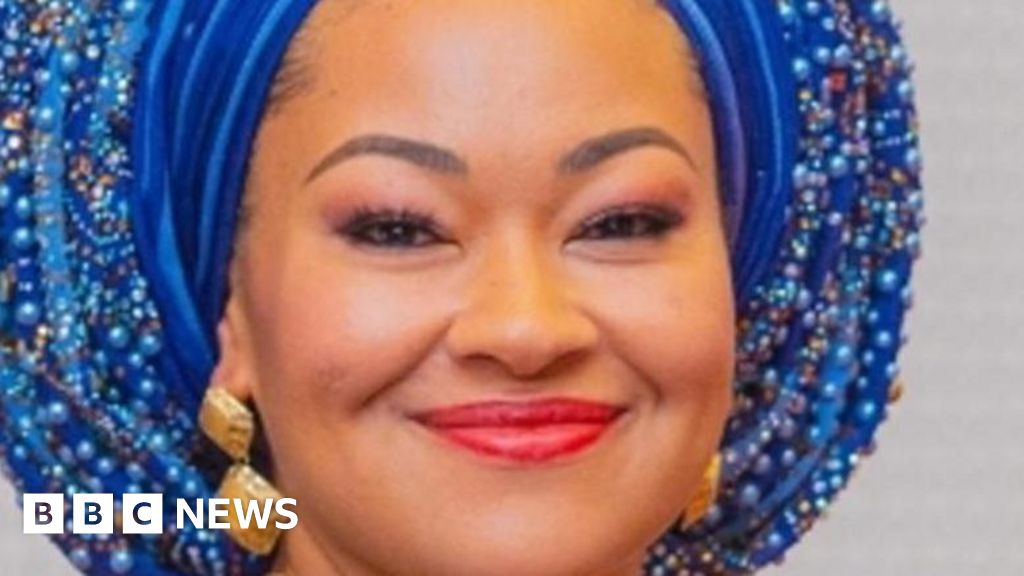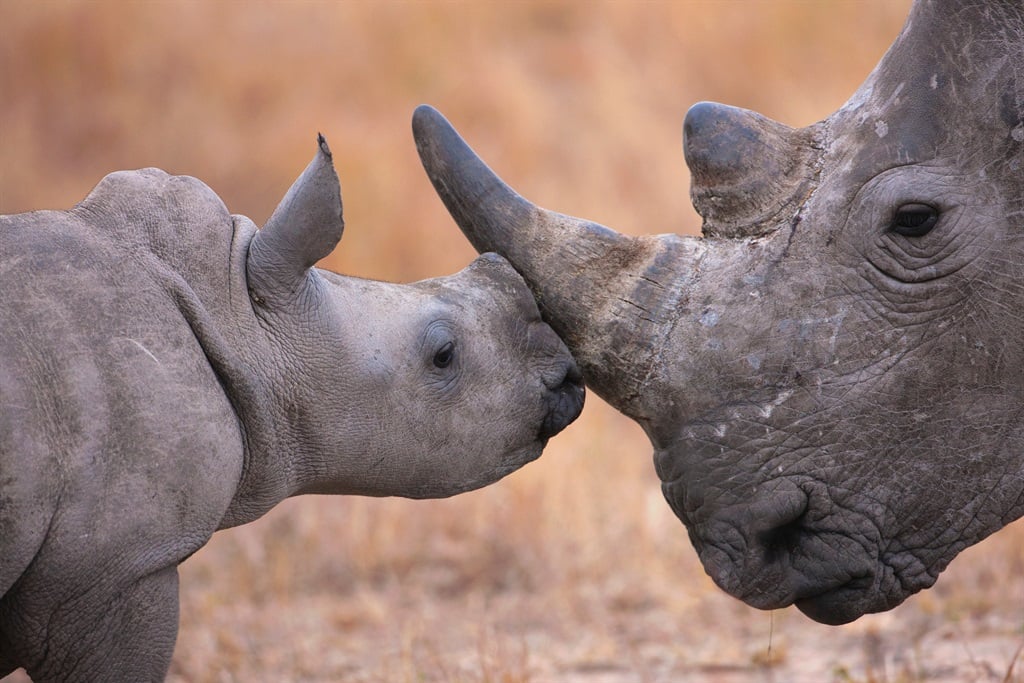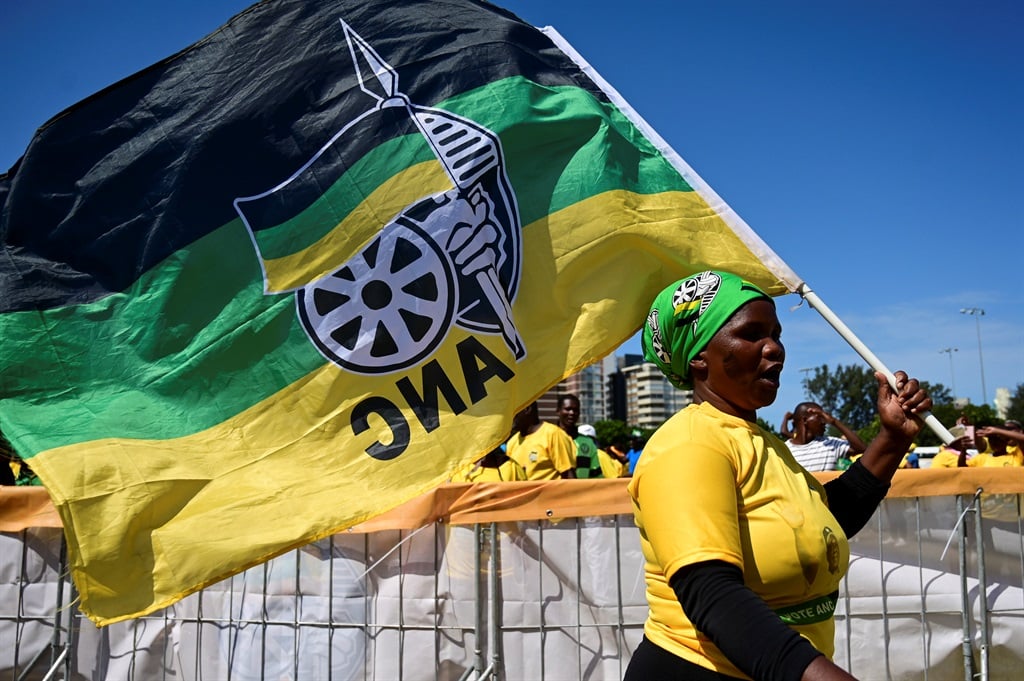
The ANC is projected to lose outright majority for the first time since 1994, with projections suggesting its support will drop to 42.3%. (Darren Stewart/Gallo Images)
- The ANC is projected to lose its outright majority for the first time since 1994, with projections suggesting its support will drop to 42.3%.
- The potential loss of majority in KwaZulu-Natal is thanks to the uMkhonto weSizwe Party; Gauteng is also at risk.
- Track the latest results via our Elections Map.
- Find everything you need to know about the 2024 general elections on News24's Elections Hub.
The 2024 general election seems to be delivering on its promise of a potentially explosive outcome.
Early projections show that the ANC is on course to lose its outright majority for the first time since 1994 - it is expected to decline to 42.3%, a breathtaking 15-percentage-point decline in support.
Worse, it may lose its majority in KwaZulu-Natal to the splinter uMkhonto weSizwe Party (MKP).
News24 elections analyst Dawie Scholtz has been crunching data from the results filtering in from voting districts for 24 hours straight.
His projections indicate that come Monday, after the Electoral Commission of South Africa (IEC) announces the official results, the country’s political landscape will have fundamentally shifted.
The implications of Scholtz's outcome are staggering.
Crucially, projections show that ANC support is on track to bottom out in the province with the country's largest economy: Gauteng.
The Gauteng economy, according to Statistics South Africa, is larger than both the economies of KwaZulu-Natal and the Western Cape combined.
READ | A tale of 10 towns: How Zuma's MK Party thrashed the ANC in KwaZulu-Natal
The Western Cape is already controlled by the DA and now projections show that the ANC will also lose its majority in KZN to former president Jacob Zuma's MK Party.
Late on Thursday, the enormity of the potential outcome had not yet sunk in.
ANC insiders expressed confidence that the party would emerge stronger as further results came in, noting that large chunks of its strongholds remained outstanding in the count.
Although at least two News24 had canvassed were extremely concerned about the outcome in KwaZulu-Natal and among urban voters in general, across the country.
By Thursday night, around 40% of the results had been counted.
According to these official results, the ANC received 42.5% of the vote nationally, the DA received 23.9%, and MKP 9.8%, dethroning the EFF in third place, whose tally of the vote was 9.4%.
According to Scholtz's projection, the ANC is likely to finish at around 42%. He uses a forecasting tool built by Media24 developers and based on a series of mathematical models he developed. The model was first used by News24 in 2019. It has a 1.5% margin of error.
Should the projection hold, the ANC would have to enter a coalition nationally, in KwaZulu-Natal and in Gauteng, and it has limited options on which party it could tie up with.
A "rats and mice" option (a group of small parties) nationally and in the two provinces would not be enough to take the ANC across the 50% line, the provincial numbers indicate.
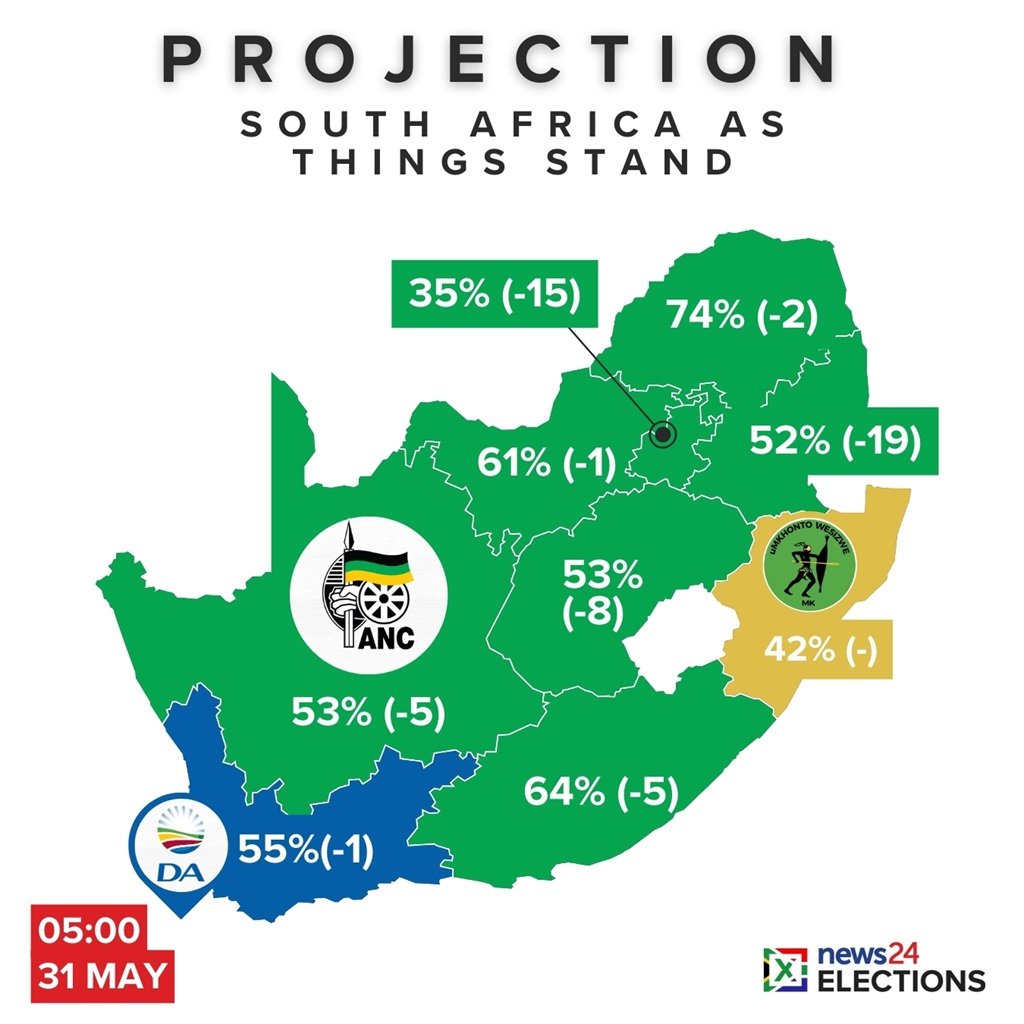
Graphics: Sharlene Rood
It will have to enter a coalition with either the DA, the EFF or MK.
A DA coalition is a more market-friendly option, but one which could have far-reaching implications for both parties internally.
Coalition talks are set to mark an inflection point between factions in the ANC, with those aligned to President Cyril Ramaphosa likely to take a vastly different stance to Deputy President Paul Mashatile and his allies in both Gauteng and KwaZulu-Natal.
READ | MK Party will not form a coalition with the ANC, says Duduzile Zuma-Sambudla
An ANC-EFF coalition is already at play in the Gauteng metros - Ekurhuleni and Johannesburg - and indications are that the party in the province has its sights set on a coalition with the EFF.
However, Scholtz projects that the ANC would need more than just the EFF to cross the line in Gauteng.
His model places ANC support in Gauteng at 35% and the EFF's at 12%, meaning the pair would be able to either form a minority government or would need another small party to help them cross the line.
In KwaZulu-Natal, it may well take a coalition between the ANC, DA and IFP to counter Zuma's MKP, which is projected to finish with the highest tally of the provincial vote. Another surprise projection emanates from MKP support in southern Mpumalanga.
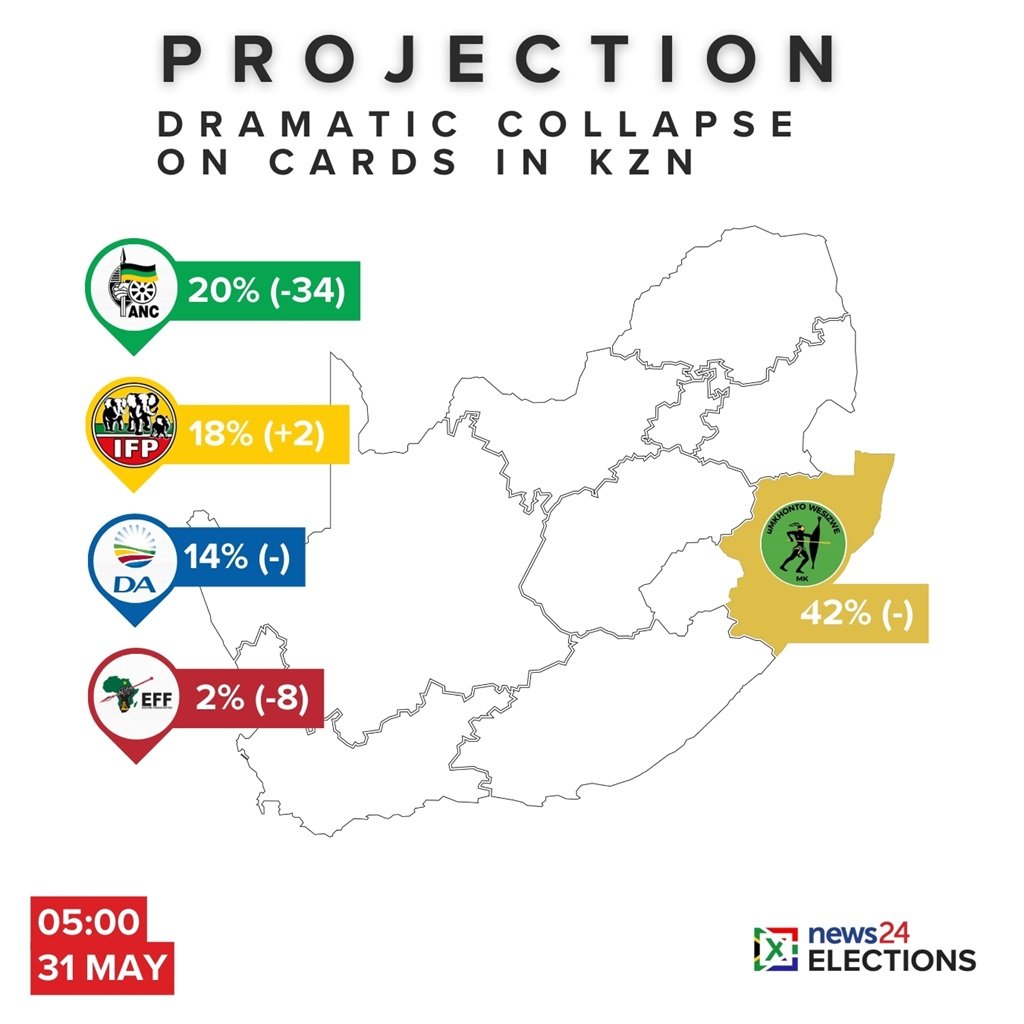
Graphics: Sharlene Rood
According to Scholtz, the ANC is expected to decline by 19 percentage points in the province, from 71% in 2019 to 52% in 2024.
This is after the ANC identified Mpumalanga as a province with the potential to attract 80% of the vote to shore up its national tally during its campaign.
The ANC is also projected to decline in the Free State, by eight percentage points, in the Eastern Cape by five percentage points and in the Northern Cape by five percentage points.
On Friday, attention is expected to shift to coalition talks as more than 50% of the official results are expected to become available.
 (1).png)
 9 months ago
34
9 months ago
34



